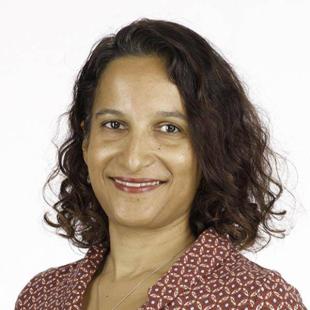-
Agrivoltaics
- Are agrivoltaics regulated in the country?
- Are there any precedents of agrivoltaics projects implemented in the country?
- Are there any regulatory hurdles for the implementation of agrivoltaics in the country?
- What is the potential for agrivoltaics in the country?
- Is there any financial support for the investment in agrivoltaics in the country?
-
Floating Photovoltaics
- Are floating photovoltaics (FPV) regulated in the country?
- Are there any precedents of FPV projects implemented in the country?
- Are there any regulatory hurdles for the implementation of FPV projects in the country?
- What is the potential for FPV projects in the country?
- Is there any financial support for the investment in FPV projects in the country?
jurisdiction
Agrivoltaics
1. Are agrivoltaics regulated in the country?
No, agrivoltaics are not regulated in Mozambique. Currently, if such a project is developed in Mozambique, it would be framed by the usual electricity generation legislation.
2. Are there any precedents of agrivoltaics projects implemented in the country?
No.
3. Are there any regulatory hurdles for the implementation of agrivoltaics in the country?
Yes, there are regulatory hurdles for the implementation of agrivoltaics in Mozambique. The key challenge is the absence of a clear legal framework that would outline the detailed conditions and procedures for developing agrivoltaic projects. The projects have to be developed and implemented following the power generation legislation in force and in particular the legislation for renewable energy, which is not completely adapted to agrivoltaics, especially regarding land issues.
Since agrivoltaics imply the growing of crops underneath solar panels, it is most likely that the person exploiting the land for agricultural purposes will not be the same as the one producing energy through the solar panels installed in the same land; the legal ownership over the land, the possibility of creating mortgages or other securities either over the land or the infrastructure created on it can raise complex legal challenges, which can also have impact on the financing of any of the projects, i.e., the agricultural or the power project. For instance, where the land title belongs to the owner of the agricultural project, it is legally questionable whether the owner of the solar project would be able to create a mortgage over the solar panels only.
Also, if the owner of both projects is the same and the use of the produced electricity is for own consumption for the agricultural project and also for sale to the public utility or to other consumers directly, the legal framework for such projects is yet to be regulated. It is expected that the regulations of the electricity law will approved by the end of 2025.
4. What is the potential for agrivoltaics in the country?
Mozambique has significant potential for agrivoltaics due to its extensive agricultural land and very favourable solar conditions.
Despite the water availability and fertile soils in some regions of Mozambique, farmers struggle with the high cost of fuels used in the water pumping systems. Therefore, the use of agrivoltaics for irrigation purposes would also be a means to reduce drastically the costs and the environmental impact caused by the diesel pumps. Agrivoltaics would bring a triple benefit: through the use of land for agriculture and for solar photovoltaic power generation, and an irrigation solution for agricultural purposes (or even implementation of other water management systems, e.g. piped water for the communities, etc.).
Moreover, development of this kind of projects in off-grid areas, namely through mini-grid systems, would also contribute to increasing the electrification access rate of rural communities and to attracting the development of industrial projects in rural areas. In fact, the existence of industrial or large-scale consumers, such as mines, is what may make this type of project more viable in off-grid areas.
5. Is there any financial support for the investment in agrivoltaics in the country?
Currently there are no specific financial support programmes in Mozambique dedicated exclusively to agrivoltaics. There are, however, several programs that support investments in RE projects, and one may expect that such programs could eventually support an agrivoltaic projects as well.
Floating Photovoltaics
1. Are floating photovoltaics (FPV) regulated in the country?
FPV is not explicitly regulated in Mozambique. It falls under the legal regime for power projects and renewable projects.
2. Are there any precedents of FPV projects implemented in the country?
No FPV projects have been implemented in Mozambique. However, the public electricity utility Electricidade de Moçambique (EDM) is currently developing the first FPV project in Mozambique. It is a project for a floating solar power plant with a capacity of 100 Megawatts (MW) on the Chicamba reservoir in Manica province, in the centre of the country. The project, which is designed to utilize the Chicamba hydropower plant reservoir’s surface for power generation, comprises the building of the power plant, but also the implementing of a storage system for the produced electricity.
3. Are there any regulatory hurdles for the implementation of FPV projects in the country?
There may be some challenges in the sense that FPV imply the articulation between water resources management, water use for private use and power generation regulatory frameworks. For example, in the case of a hydroelectric dam, there is a concessionaire for the exploitation of the hydroelectric undertaking, there is the public administration that is in charge of the dam management and there is the development of the FPV (which is not necessarily the same as the hydroelectric power plant concessionaire), and so it will be necessary to coordinate the rights and obligations of all parties involved.
4. What is the potential for FPV projects in the country?
Mozambique has a huge solar potential. The country’s global solar exposure varies between 1,785 and 2,206 kWh/m2/year, which represents an estimated potential of 23,000 GW. Mozambique is also rich in bodies of water like rivers, natural lakes, hydropower reservoirs, namely dams inherited from the colonial era. Therefore, there is great potential for the installation of FPV.
5. Is there any financial support for the investment in FPV projects in the country?
Africa50, the pan-African infrastructure investment platform, is collaborating with EDM to develop the 100 MW FPV Chicamba reservoir Project in Manica province, under the $4.5 billion Africa Green Investment initiative.
The African Development Bank (AfDB) will finance the construction of the referred Chicamba FPV Project. The project will involve an investment of 158.2 million meticais (2.5 million dollars), made available through SEFA (Sustainable Energy for Africa).






